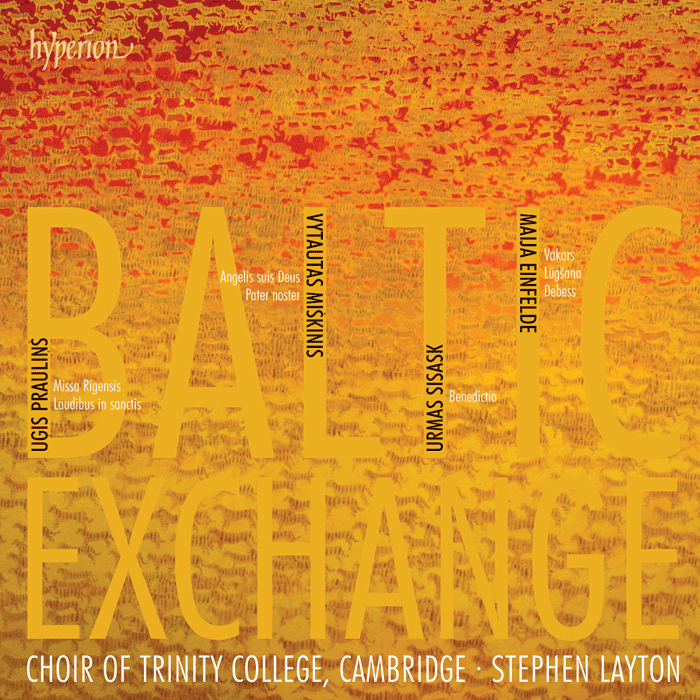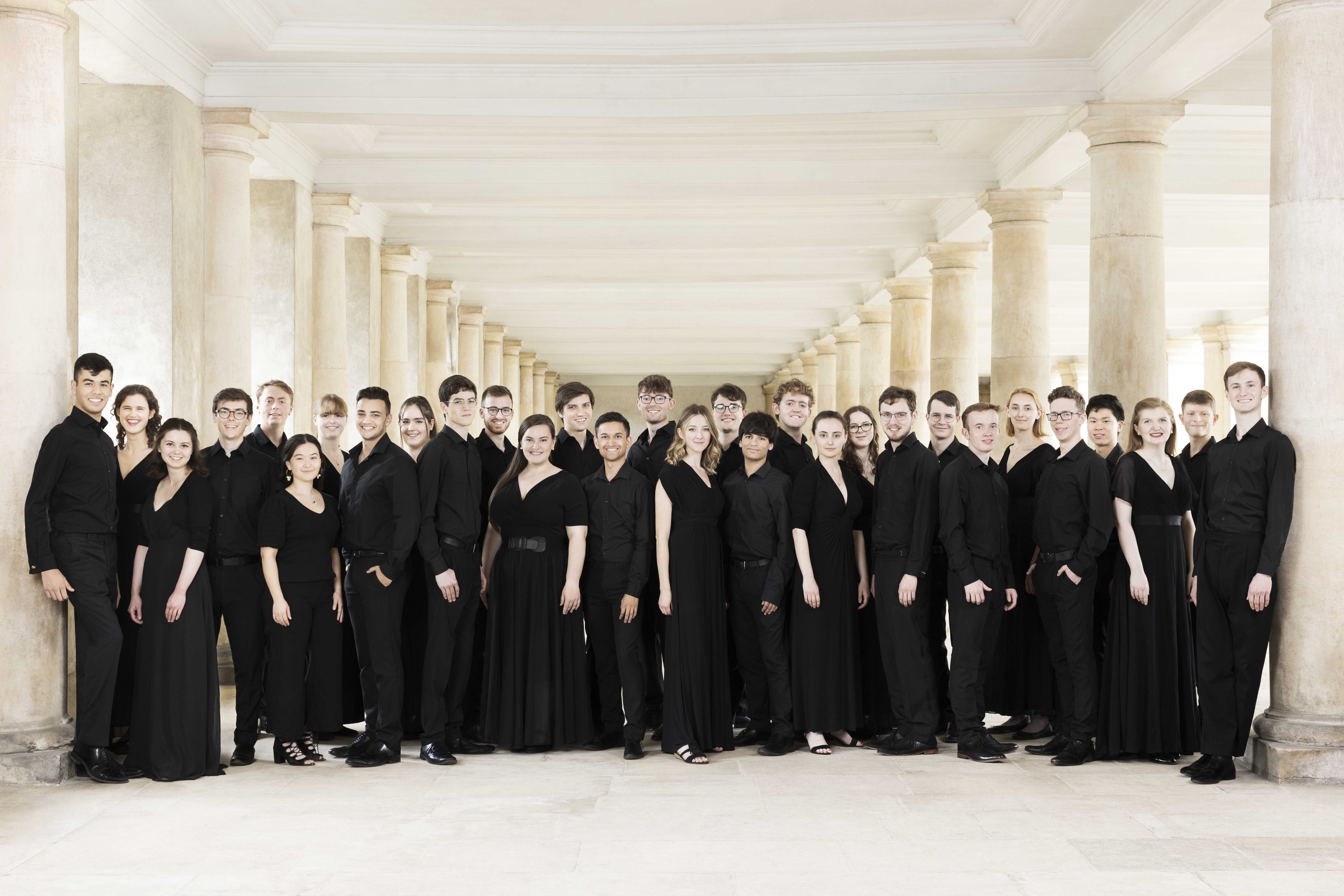Baltic Exchange - Music Web International
> See recording details...Baltic Exchange is an apt title for a selection of choral works by four Baltic composers sung by a British choir and recorded by a British label. I must straightaway admit that all but one of these composers are completely new to me.
As can be seen in the above details, Latvian-born Prauliņš has the lion’s share in this generous cross-section. His large-scale and substantial Missa Rigensis composed for the Riga Dom Boys’ Choir has pride of place and launches proceedings in the grandest possible manner. This is a setting of the so-called ordinary mass albeit capped by a Post-Communion. The music presents a remarkably successful synthesis of age-old choral tradition as represented by the big polyphonic masses composed in Italy and of some more modern rhythmic and formal devices. The Kyrie has a timeless character that strongly contrasts with the burst of energy at the opening of the ensuing Gloria which, with the Credo, is by far the most developed movement. As might be expected the music is full of often striking contrasts and often hovers between moments of peaceful meditation and other of exultation. The final Agnus Dei is capped by a Post-Communion “where long-breathed vocalise underpins an ad lib spoken prayer”. This is simple but quite effective. The Mass ends in utter peacefulness. There is much nicely judged choral writing that helps create a vast choral fresco of great expressive strength. Specially written for this recording and dedicated to Stephen Layton, Prauliņš’ Laudibus in sanctis is a short cantata setting words adapted after Psalm 150. This is a celebratory work opening with a great choral outburst. Afterwards, as the music progresses, the voices suggest the instruments mentioned in the words of Psalm 150 (warlike trumpet, Pierian lyre, resounding timbrels, lofty organs and the like) always with refined musical means and without ever sounding bluntly descriptive.
Maija Einfeld’s Cikls ar Friča Bārdas dzeju (“A cycle of Fricis Bārda poems”) is the only profane work in this selection of Baltic choral music. Three beautiful settings of short poems of romantic and naturalistic character. The words are quite beautiful, at least judging from the translations. The music is somewhat more stringent in these settings than in any other work recorded here. It is also mildly dissonant but effective in its forthrightness, painting musical landscapes in “grey, green, brown and the colour of the sun” (Gabriel Jackson). This short cycle is one of the little gems here.
The other is Sisask’s Benedictio, a simple setting of the ordinary Post-Communion blessing in an almost ritualistic manner with repetition of rhythmic gestures underpinning some brief flights of song. This inventive and attractive short work is (to quote Gabriel Jackson again) “a vividly re-imagining of primordial runic song”.
The fourth composer represented here is Lithuanian-born Vytautas Miškinis whose Angelis suis Deus was written as a fortieth birthday present for Stephen Layton. This is another nicely imagined miniature, fairly simple and straightforward. His Pater Noster, too, is a quite inventive piece of music in which repetition plays a great part. Female voices intone a repeated phrase in pulsing chords to the words “Pater noster, qui es in coelis”. Male voices enter unsynchronised adding still more urgency to the prayer of the female voices. All voices then repeat the introduction with mounting intensity until reaching a climax abruptly cut short. The opening pattern is now resumed but to the words “sed libera nos a malo” and a lone soprano eventually voices repeated Amens.
Stephen Layton conducts vital and immaculate performances. These works must be quite taxing and they’re not always as simple or as straightforward as they may sound. The singing is a pure joy from first to last. The recording lends an appropriately reverberant aura to the music. This splendid release perfectly complements Hyperion’s disc devoted to Dubra’s choral music, enthusiastically reviewed here a few months ago (“Hail, Queen of Heaven” – CDA67790). This disc will appeal strongly to all lovers of imaginative choral music, but others – I am sure – will find much to relish.
Hubert Culot

Hyperion Records CDA67747
